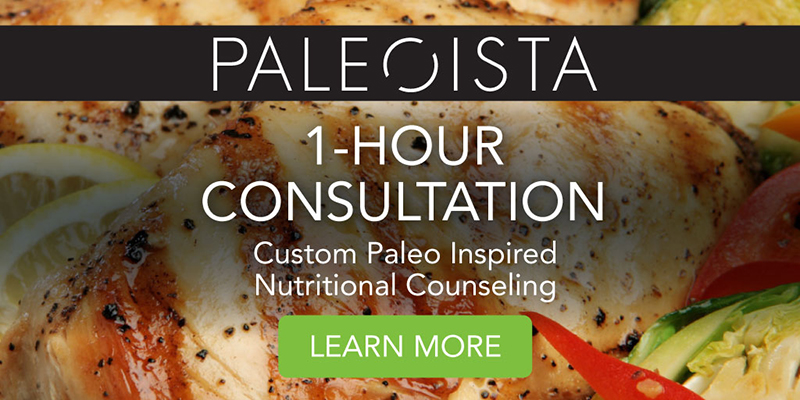Reboot, Refocus, and Boost Energy Naturally
If you’re looking for a boost of energy and you’re focused on food, you’re well ahead of the game. Far too many people overlook this fundamental piece of the puzzle (what they’re eating) and head straight to the OTC energy boosting pills or drinks that also promise to make you a better fat burner.
Many people rely on energy drinks like 5-Hour Energy, Monster Energy and Red Bull; some grocery and convenience stores even sell more energy drinks than they do sodas! In 2012, retail sales of energy drinks in the United States reached $10 million.1
The general consensus seems to be there is a need for an ‘energy boost,’ but turning to a concoction of stimulants, artificial colors, flavors and real or fake sugar is hardly the way to go.
First, let’s put this into perspective with Monster Energy. Monster is one of the most popular brands of energy drinks, and yet their ingredient label list falls short from containing recognizable food sources:2
Carbonated water, sucrose, glucose, citric acid, natural flavors, taurine, sodium citrate, color added, panax ginseng root extract, L-carnitine, caffeine, sorbic acid, benzoic acid, niacinamide, sodium chloride, glucuronolactone, inositol, guarana seed extract, pyridoxine hydrochloride, sucralose, riboflavin, maltodextrin, and cyanocobalamin.
And, while you may feel you’ve gotten a ‘boost of energy’ and consumed it at just the right time before that important meeting or workout, the boost will be short lived at best, only to come back to bite you in the butt at worst.
Not surprisingly, after the initial ‘high,’ once the sugars from the beverages are used up, your insulin level plummets and you experience fatigue, leaving you lagging within about an hour, according to Dr. Christine Gerbstadt, spokesperson for the American Dietetic Association.3
On the flipside, if you’re depending on caffeine to do the trick, there is limited scientific evidence to suggest caffeine can significantly improve your mental and physical performance, driving ability when tired, and decrease mental fatigue.
Finally, overuse of another the commonly found ingredient in energy drinks, Taurine, may lead to chronic low-blood sugar.4
So here’s a thought: how about planning your food choices starting with what you eat (or don’t) first thing in the morning in order to set the stage for a fat burning and consequentially laser-sharp mental focus metabolism? Rather than starting the day with a meal rich in carbohydrates, even natural carbs such as those you’d find in a bowl of fresh fruit, if your first meal is based on higher fat, protein and veggies, and thus a lower net carbohydrate content, you’re doing yourself a huge favor.
Hold on a second, doesn’t the brain ‘need’ glucose to function? Yes, of course. But it doesn’t need carbohydrate to make glucose. And, if given the opportunity to adapt, the body can begin to make the vital fuel it needs for the brain from ketone bodies, the byproducts produced when fatty acids are broken down by the liver in as little as a few short days.5
And it’s not a second-class fuel, by any means. Researchers have shown low-carb diets can improve cognitive function in both aged humans and rodents compared to traditional diets.6
So if you’re looking for a boost, look no further than that ripe avocado you have sitting in the fruit bowl or the jar of coconut oil in the cupboard. Upping the fat portion of your daily regime simply by adding more of a variety of fat sources to your meals, reducing or omitting fruit and continuing to eat your wild, Paleo approved natural proteins and local veggies, you’ll soon begin to reap the benefits of what the real low-carb approach is really all about.
Planning your meals post exercise, in order to train in a fasted state, will only help further your progress. Forget about the low carb diet recommendations to include regular consumption of packaged bars laden with low-calorie sugar alcohols, sugar-free cookie and cake mixes. Just as when Paleo is taken out of context and implemented haphazardly by attempting to model foods from the Standard American Diet (SAD) with replacements that are slightly less unhealthy, the scenario above is, in effect, just one more example of a sound approach to getting healthy taken completely out of whack and exploited.
Bottom line: to get an energy boost, to improve mental focus, to lose excess body fat, to improve performance in sport, (and this is just the beginning!), we behoove ourselves tremendously when we welcome the opportunity to become reliant on fat as our fuel, rather than carbohydrate.
When you’re already flying high simply by eating the right foods, there’s no need to seek out energy boosters!
REFERENCES
[1] Consumer Law Lawyers. N.p., n.d. Web. 29 June 2015.
[2] Wikipedia. Wikimedia Foundation, n.d. Web. 29 June 2015
[3] “Why Do Energy Drinks Make You Crash?” LIVESTRONG.COM. LIVESTRONG.COM, 24 Feb. 2014. Web. 29 June 2015
[4] Health Effects of Energy Drinks on Children, Adolescents, and Young Adults
Sara M. Seifert, Judith L. Schaechter, Eugene R. Hershorin, and Steven E. Lipshultz. Pediatrics 2011; 127:3 511-528; published ahead of print February 14, 2011, doi:10.1542/peds.2009-3592
[5] Forbes. Forbes Magazine, n.d. Web. 30 June 2015
[6] Long-term Effects of a Very Low-Carbohydrate Diet and a Low-Fat Diet on Mood and Cognitive Function.” JAMA Network. N.p., n.d. Web. 30 June 2015.






